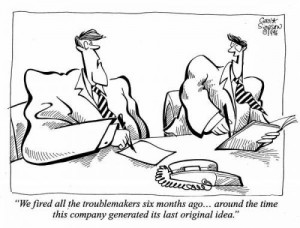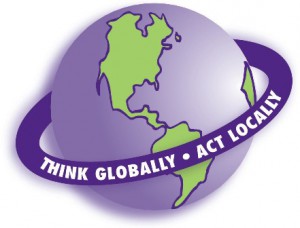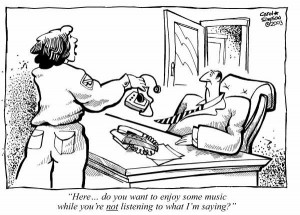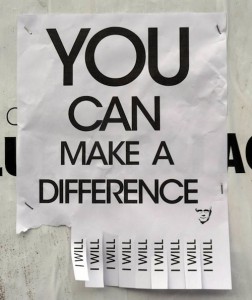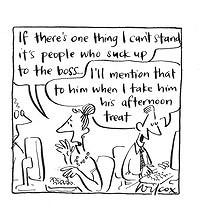Adequate Performance Gets a Generous Severance Package
“There is no policy requiring clothing, but no one comes to work naked.
Lesson: You don’t need policies for everything”
Be the market surprise instead of being surprised by the market. Increase the density of talent in your organization faster than the complexity increases around you. In the same way you can’t control the forces that affect your company, to attract the best and the brightest you may not want to try to control your top talent either. Certainly companies should support them, grow them, challenge them, and reward them. But increasingly companies are finding deeper talent and bigger results by relinquishing control over them.
This trend in giving employees autonomy puts the focus on results rather than on punching a time clock. Netflix has recognized that as a business which never sleeps, they in fact have no standard working hours for the company, and therefore should extend that analogy to respect the discretionary decision-making of their employees. So Netflix treats them like adults. As a slide presentation on their website describes, Netflix pays above-average in the industry, provides generous benefits and works to “attract and retain stunning colleagues.” How and when you get your work done is up to you, but they expect results.
“Adequate performance gets a generous severance package” reads their website. Clearly they create an environment intended to gain the best and brightest people but as they advertise, they function more like a high performance professional sports team, not like a family which forgives every fault. Managers have a test they perform when evaluating performance. They ask themselves this question, “Which of my people, if they told me they were leaving, would I work hard to keep at Netflix?” If someone doesn’t satisfy that question, they are offered the generous severance package to open up that position for a star performer.
To punctuate their focus on results, not hours, their presentation goes on to say, “Sustained A-level performance with minimal effort, is rewarded with greater responsibility, and great pay.” By focusing on results rather than mere presence or compliance, employees are more likely to feel accountable and less likely to waste the company’s time or money.

